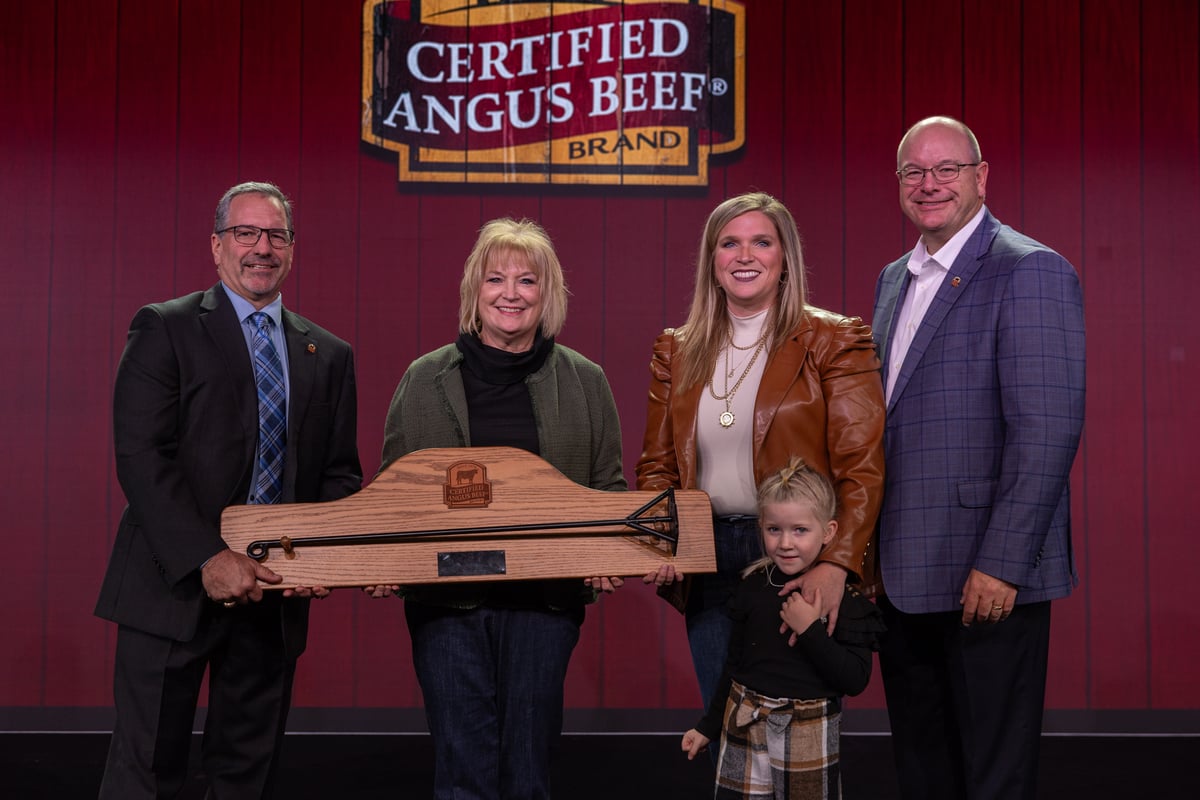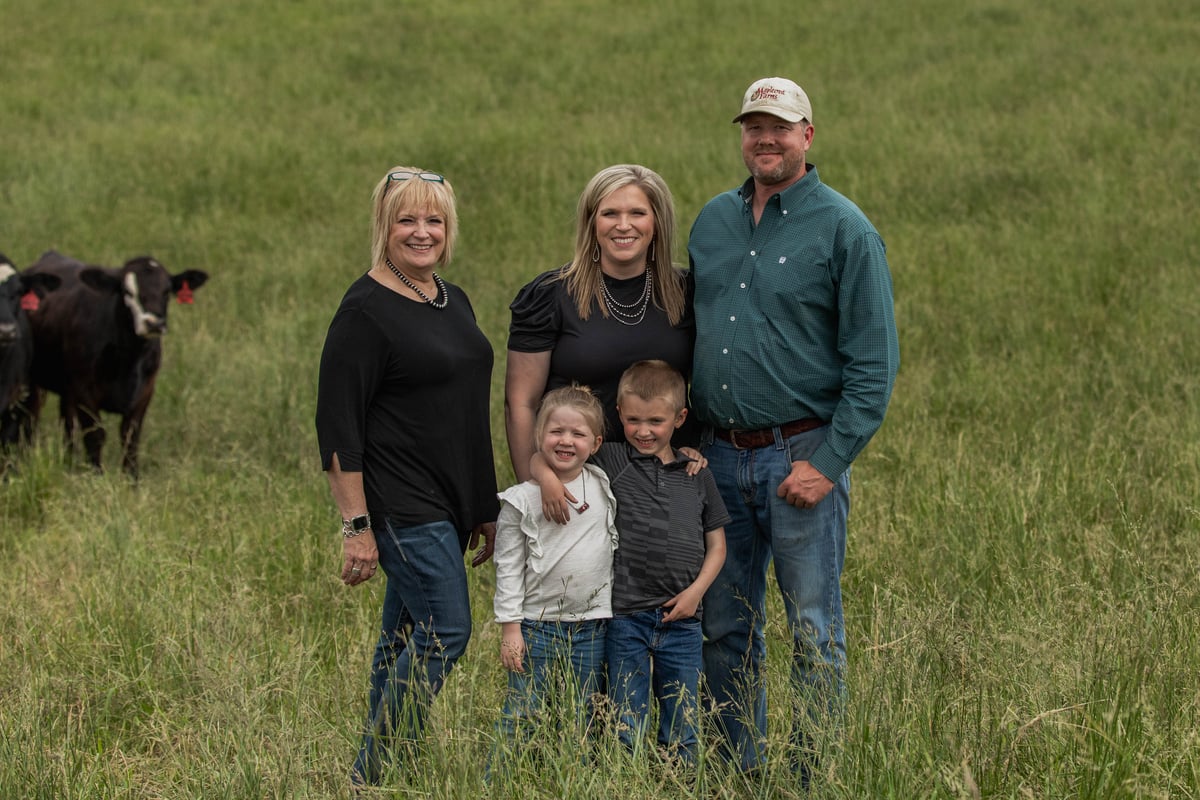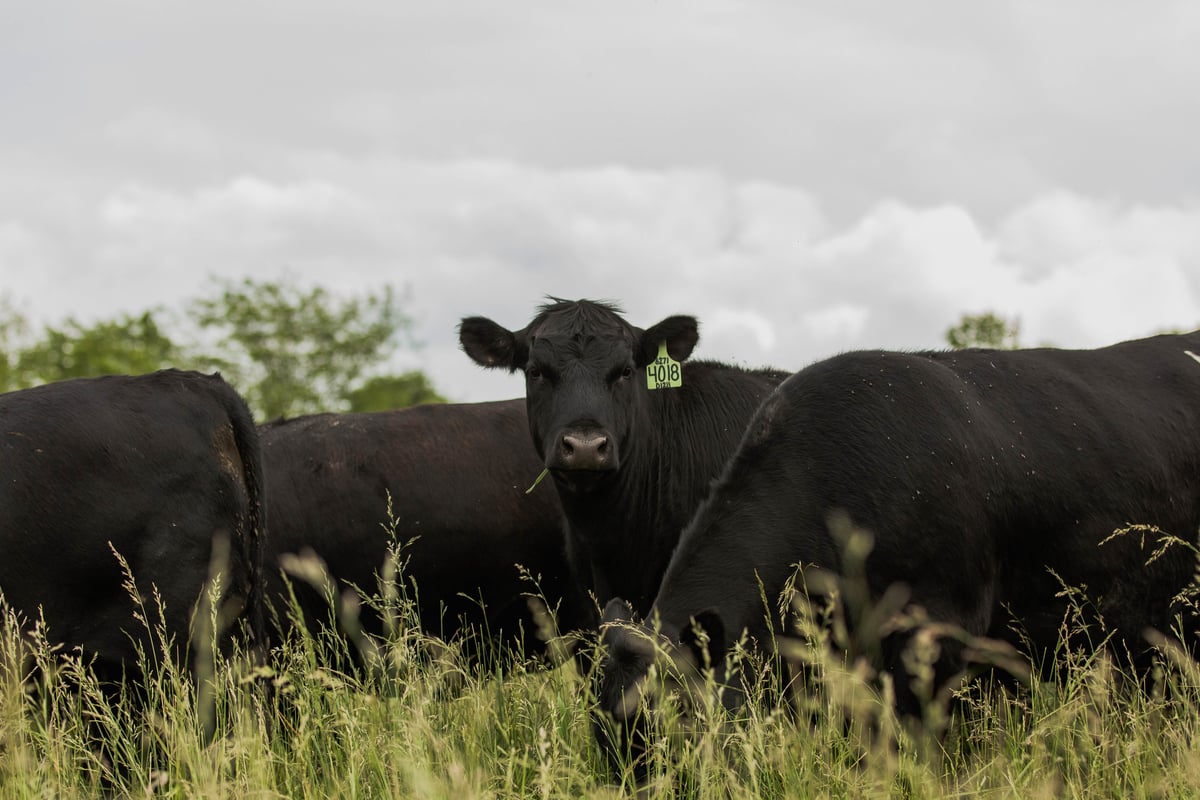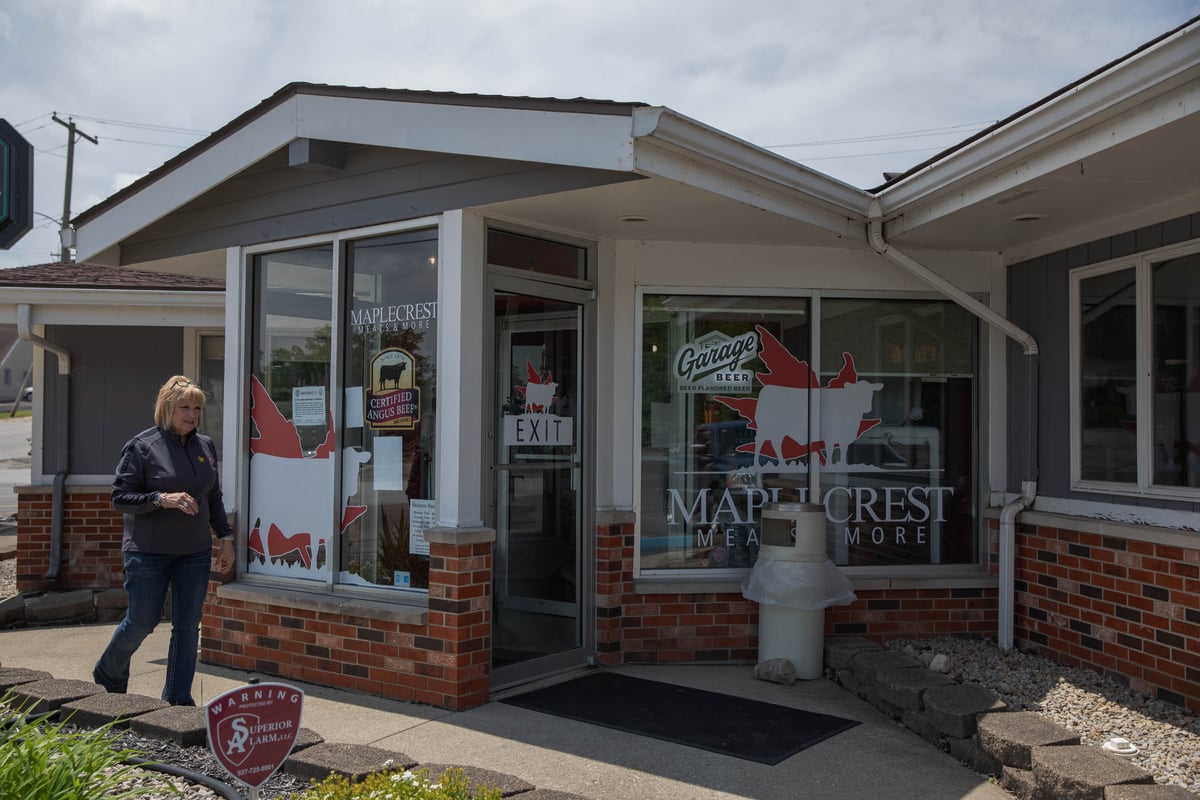
| Good partners drive successful businesses. At Maplecrest Farms, Joanie Grimes and her family have forged relationships across the supply chain, aligning their high-performing Angus genetics and customer-first mentality to elevate both their businesses and the breed. The outcome? A reputation for trust, quality and an unwavering commitment to the cattle industry. Joanie, with daughter Lindsey and her husband, Adam Hall, raise registered Angus cattle with two primary goals: producing high-quality seedstock for a wide variety of environments and ensuring end-user satisfaction. Their unique position brings together opposite ends of the supply chain—promoting everything from high-quality Angus genetics to the Certified Angus Beef ® brand with partners and consumers—and earned them the 2025 Certified Angus Beef (CAB) Ambassador Award. |
 |
| Caption: (L to R) Joanie Grimes, Lindsey, Adam, Henley and Holden Hall |
| Champions for the breed In 1998, Joanie and her late husband John road tripped across Kansas, which led them to change direction at Maplecrest Farms. What started as 40 cows has grown and expanded to an Angus seedstock business with more than 300 cows. They’ve also broadened their customer base. “Folks in our region want their cows to look good, but we also understand and respect the bigger picture and our role as registered Angus breeders in the beef production chain,” Lindsey says, crediting her dad for teaching her this. “It’s a delicate balance and you have to be very disciplined.” Patient study of pedigrees, examining how cattle are built and then choosing careful mating combinations has paid off. “There’s some thought in the industry that you can’t have both,” Joanie says. “John was very successful in breeding cattle that not only produce Prime carcasses but also are very fine individuals that you are proud to look at in the front pasture.” |
 |
| Caption: Early adopters of technology and data, genetic progress happens quickly at Maplecrest Farms. |
| A growing connection Hillsboro is only three hours from the CAB office and in closer proximity to many brand partners. The family is always willing to attend food shows to represent Angus producers and share how cattle are cared for on the farm. They also host CAB ranch days throughout the year. After dozens of tours, Lindsey says the biggest surprise is when guests realize the science and technology ranchers use. They walk through the barn and see the semen tanks and where embryos are kept. They show them where cows are flushed and then bred using in vitro fertilization. “Those are things they can relate to because they understand from a human perspective,” Lindsey says. “It’s so fun to see their faces light up because they had no idea we use the same technology.” Being ambassadors for CAB has shown them that everyone has a role in the beef supply chain. “Even though we’re at the beginning of the production chain, we’re always thinking about the restaurateur and foodservice distributors and how the decisions we make at breeding affect the eating experience they deliver to their customers,” Lindsey says. And ultimately, the success of both their businesses. |
 |
| Caption: Their Maplecrest Meats storefront allows them to share their story with their customers and educate them on the versatility of beef. |
| From farm to fork In the spring of 2021, they launched Maplecrest Meats, a direct-to-consumer meat business. The new store not only gave Lindsey a larger role with the family business, but it also gave them another way to work with their customers to source beef. They tap into a supply of calves, still using Maplecrest genetics, to source a wider variety of ages for the store year-round. This also gives their local bull customers another market for their feeder calves, Joanie says. To be successful, they needed the right partner. That’s how they became one of the first CAB Ranch to Table™ licensees. Maplecrest Meats also gives them a direct avenue to engage and talk with consumers. “When we tell people our story at the store, one of the things we tell them is that everything that is in that freezer and every mama cow and every bull we own has had a 23andMe test,” Joanie says. “They kind of look at you [puzzled] and we tell them how we know genetically what makes them up.” They test DNA for each animal and submit phenotype and performance data to the American Angus Association. For years, this improved their cattle; now it’s helping their store succeed and grow. All that work done today will be enjoyed on someone’s dinner table years down the road. Realizing that, they’ll always be strong ambassadors for every step of the beef supply chain. Find the original story published in the October 2025 Angus Journal. |

















